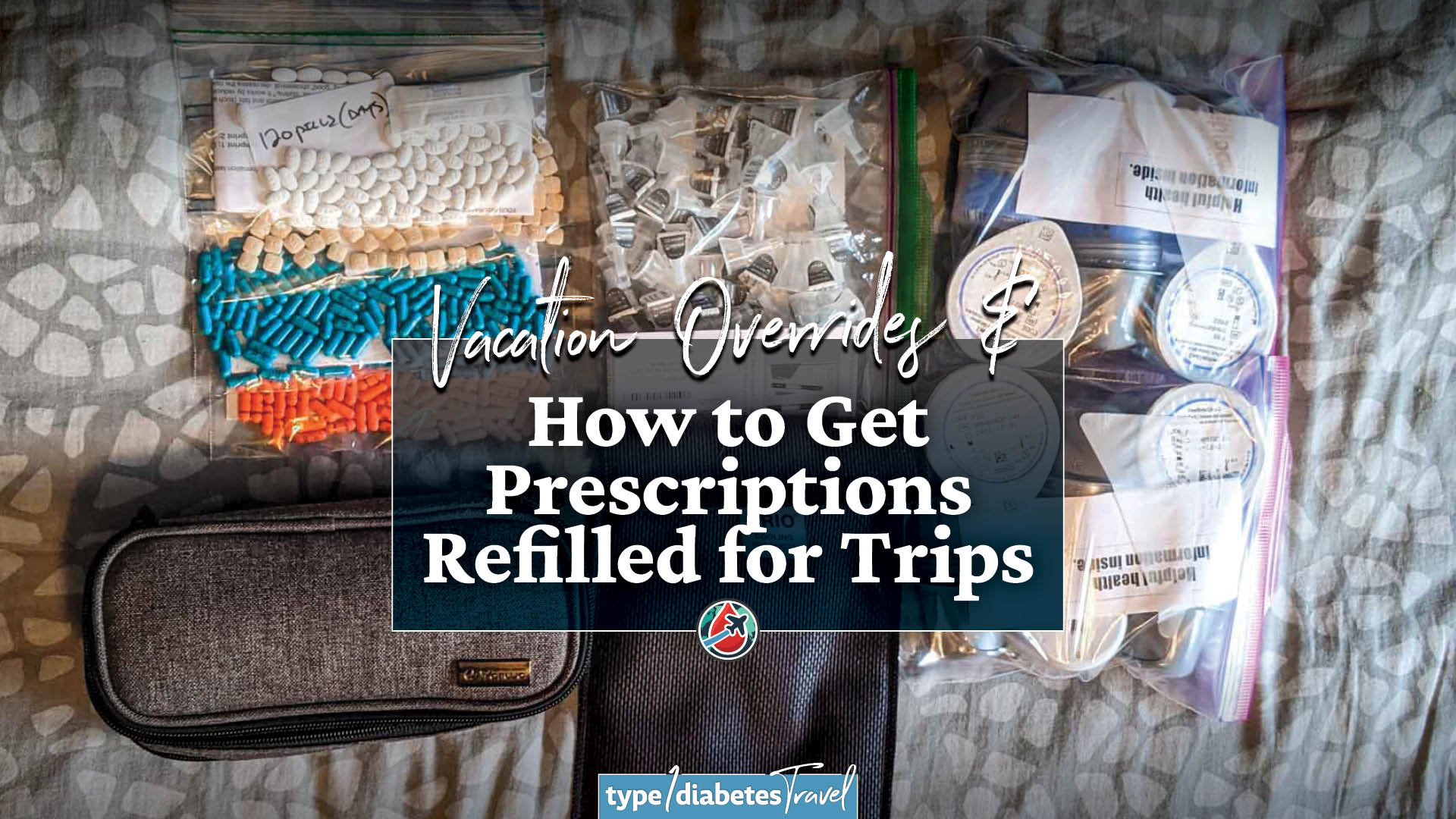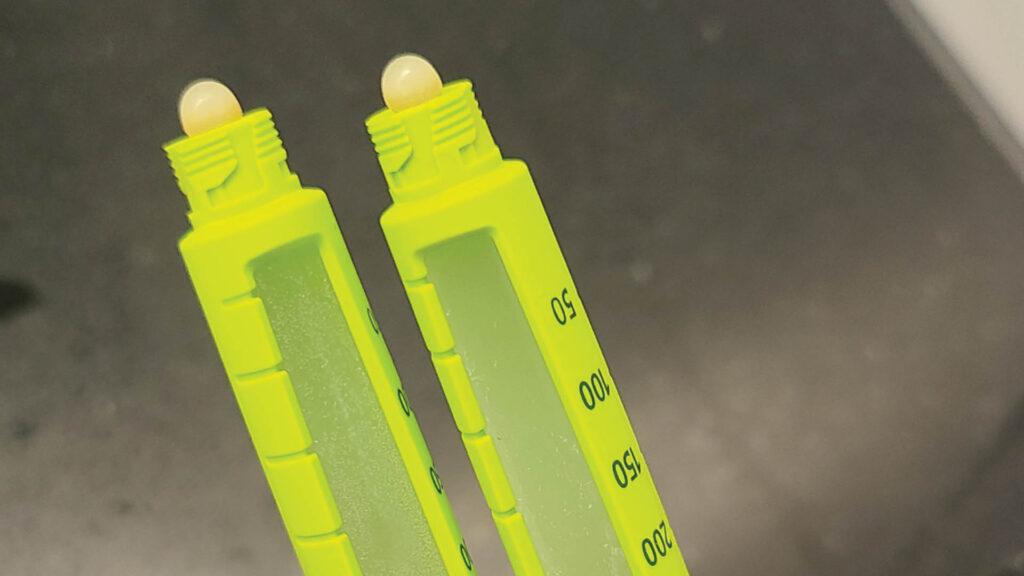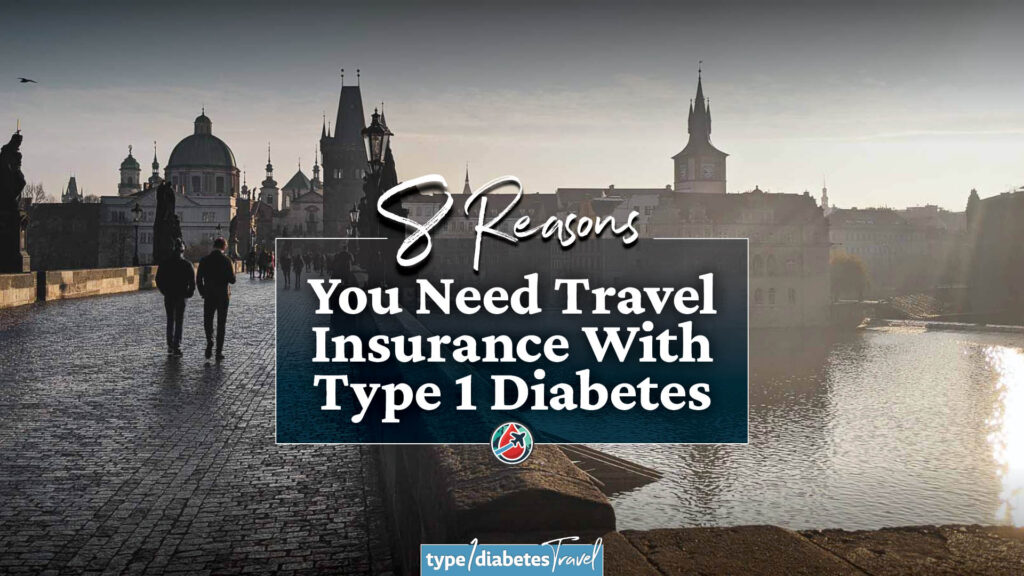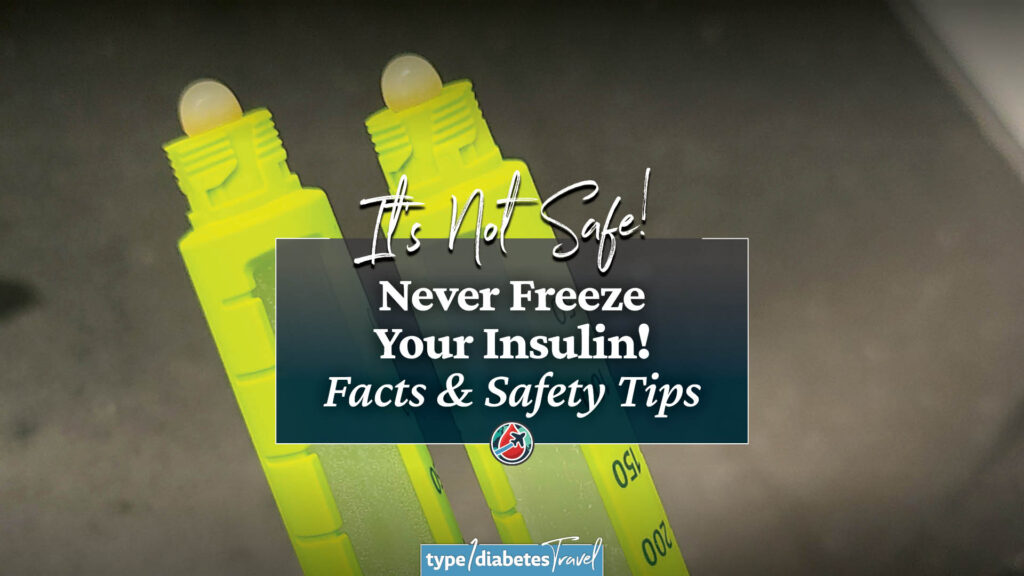What Is a Vacation Override? How to Get Prescriptions Refilled for Vacation
Planning for Medication and Prescription Needs Before Traveling
When planning a long trip—whether for weeks or months of international travel, a temporary move, or an extended vacation—you need to make sure you have enough of your essential medications and prescriptions. For people with chronic conditions like type 1 diabetes, missing doses is not an option.
But what happens when your standard refill schedule doesn’t align with your travel plans? That’s where a vacation override comes in.
A vacation override is a special request to your health insurance provider that allows you to refill your prescriptions early so that you don’t run out while you’re away.
This process can be straightforward, but if you have many different conditions…and thus prescriptions…it can be a little more complicated. Here’s how I navigated it and what you need to know to make it as smooth as possible.
Sign Up Now For New Travel Tips & Inspiration
This site participates in the Amazon Services LLC Associates Program and other affiliate programs and may earn from qualifying purchases.
DISCLAIMER: Always consult a healthcare professional before making any medical decisions. The information on this website should not be used as a substitute for professional medical care or advice. It provides general information and does not make any warranties about the completeness, reliability, or accuracy of this information. Type 1 diabetes travel will not be liable for any losses and/or damages in connection with the use of this website.
My First Experience Getting a Vacation Override for Prescriptions
Before a long trip abroad, I realized my medication supplies were all over the place. I usually got 90-day refills, but my actual stock varied. Some meds I had months worth, others only weeks, and a few were running dangerously low. I knew I needed a plan to ensure I had enough for my three- to four-month trip, but I had no idea where to start.
I asked my pharmacist, who immediately told me that I needed to request a vacation override. Sounds simple, right? Well, in theory. My situation got a little messy because I take many medications beyond those for my type 1 diabetes, but my pharmacist reassured me that for most people, this process is quick and painless.
6 STEPS – Getting a Vacation Override for Prescriptions
1. Confirm You Have Prescription Refills Available
Before you can request an override, you need active refills on your prescriptions. If you’re running low or your prescription has expired, you may need a doctor’s appointment first.
Some insurance providers won’t approve early refills unless you’ve had a recent visit.
2. Calculate How Much Medication You Need
Make a list of all your prescriptions and determine exactly how much you’ll need to last through your trip. If possible, round up to account for any travel delays or trip extensions. For insulin users, having extra pens or vials is essential in case of spoilage or unexpected high usage.
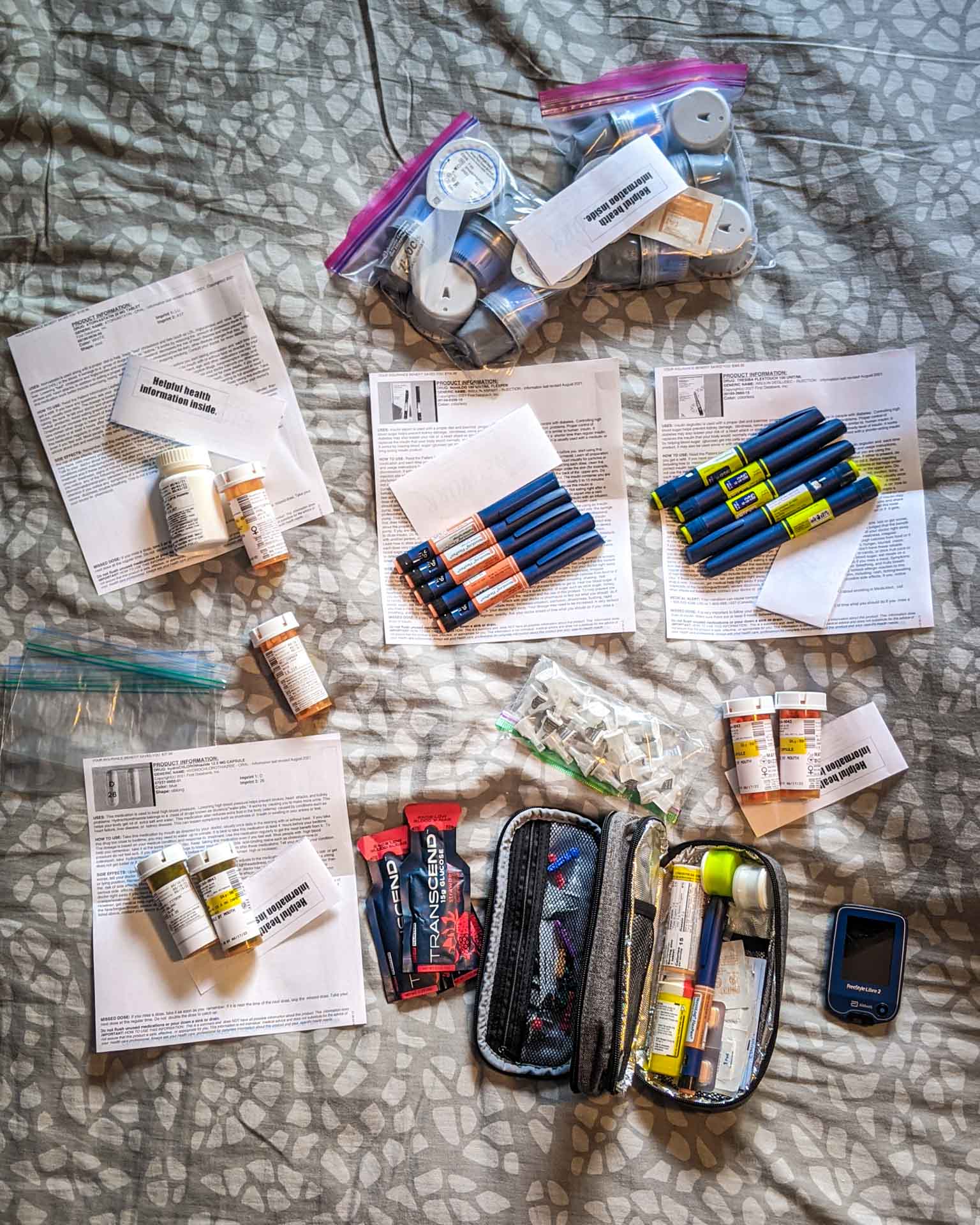
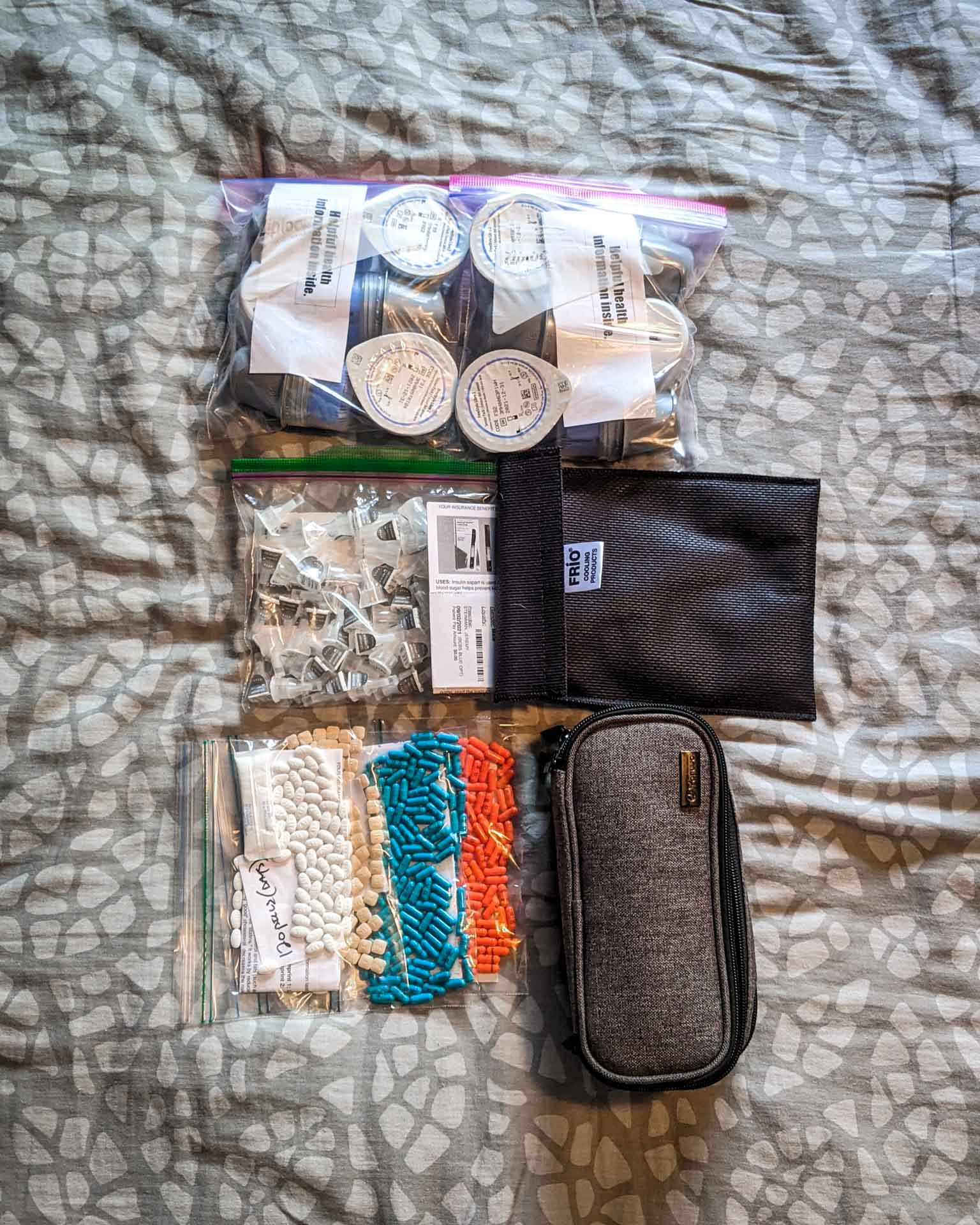
3. Gather Important Details
Before calling your insurance, have all necessary information ready, including:
- A full list of your medications and dosages
- Your pharmacy’s name, address, and phone number
- The exact dates of your trip and how many days of medication you need
- The name and contact information of the prescribing doctor
Double-check that everything is correct before ending your call with insurance. I made the mistake of assuming they got it all right, only to find out later that a crucial medication had been left off the approval list.
4. Call Your Insurance Provider
Contact your primary health insurance company and request a vacation override. Let them know you’ll be traveling for an extended period and need an early refill. Most insurance companies allow vacation overrides, typically twice a year, but policies vary.
Some may require proof of travel, so be prepared to provide flight details or an itinerary if asked.
5. Get Approval and Pick Up Your Medications Quickly
If your request is approved, your insurance provider will send the override authorization to your pharmacy. Be aware that many insurance companies place a tight deadline on picking up your medication, sometimes within 48 hours of the order.
6. Double-Check Everything Before You Leave
When you go to pick up your meds, verify that you have everything you need. Make sure no prescriptions are missing, quantities are correct, and confirm expiration dates. If you need additional supplies, such as insulin pump reservoirs, infusion sets, or glucose sensors, ensure you have enough to last the entire trip.
Travel Medical Insurance and Emergency Medications
Travel medical insurance can be a lifesaver if you lose (or accidentally freeze…) your medications, experience an emergency, or need to refill prescriptions unexpectedly while abroad. Here’s how having a good travel medical insurance policy can help:
- Coverage for Emergency Prescriptions – Some travel insurance policies cover the cost of emergency medication refills if your prescription is lost, stolen, or damaged during your trip.
- Access to International Pharmacies – Many plans offer assistance in locating reputable pharmacies abroad and ensuring you get the correct medication equivalent.
- Doctor Visits and Prescription Assistance – If you need to see a doctor to obtain a new prescription, travel insurance may cover the cost of the consultation and required tests.
- Medical Evacuation Coverage – If your condition requires urgent care that’s not available at your destination, travel medical insurance can assist in arranging and covering transportation to a suitable facility. But they’re not all the same…
- A Representative that Speaks Your Language – A good travel medical insurance company will have a number for you to call with a representative that will help you coordinate your needs in your own language. This can make the process much easier, since they often help coordinate what doctor or pharmacy you’ll use.
Before purchasing a travel medical insurance policy, check the policy details to see what coverage is provided for prescription medications.
And If you’re traveling for an extended period, consider a travel medical insurance policy with strong medication and medical assistance benefits.
Additional Tips for Traveling with Prescription Medications
Even with a vacation override, managing medication while traveling requires extra planning. Here are some additional things to keep in mind:
- Pack Medications in Your Carry-On – Never check essential medications in your luggage. Keep them with you in case of lost baggage.
- Carry a Doctor’s Note – Some countries require proof of prescriptions, especially for controlled substances.
- Check International Medication Laws – Some medications that are legal in your home country may be restricted or prohibited in other countries.
- Store Medications Properly – If traveling with insulin, use a Frio pack or travel cooler to keep it at a safe temperature.
- Have Backup Supplies – Bring extra test strips, CGM sensors, pump supplies, and emergency syringes in case of device failures.
- Know the Brand and Generic Names of your prescriptions – Some medications have different brand names in other countries. Knowing the generic or brand name specific to the country you’re traveling to can help. This can speed up conversations with healthcare providers, especially if they are unfamiliar with the equivalent medication in their country.
Travel Tips for People with Diabetes
If you have type 1 diabetes, there are extra factors to consider when preparing for long-term travel:
- Insulin Storage – Insulin must be kept at a safe temperature. Consider bringing multiple cooling solutions or an insulated travel cooler.
- Extra Supplies – Bring twice the number of infusion sets (within reason, depending on trip length), CGM sensors, test strips, and syringes you think you’ll need.
- Backup Insulin Pump Plan – Have a backup plan in case your insulin pump malfunctions. Carry long-acting insulin and syringes in case you need to switch to injections temporarily.
- Emergency Glucagon – If you’re prone to severe hypoglycemia, or just have glucagon in case of a hypoglycemic emergency, make sure to pack your glucagon.
Make sure they don’t expire during your travel plans, and ensure your travel companions know how to use them.
- Prescription Documentation – Some countries have strict medication import laws. Bring a doctor’s note and printed prescriptions to avoid any issues at customs.
What If Your Insurance Denies Your Vacation Override Request?
Not all insurance plans approve vacation overrides, or they may have restrictions that make it difficult. If your request is denied, here are a few options:
Appeal the Decision – Ask for an exception based on medical necessity.
Pay Out of Pocket – In some cases, it may be worth buying a small supply without insurance coverage.
Use an International Pharmacy – Some countries have reputable pharmacies that sell common medications at a lower cost.
Ask Your Doctor for Samples – If you’re in a bind, your healthcare provider might have medication samples to hold you over.
Final Thoughts
Getting a vacation override for your prescriptions is essential for medium- to long-term travel whether across states or internationally. And while the process can vary depending on your insurance, it’s generally a straightforward request.
The key is to plan ahead—start the process at least a few weeks before your trip to allow for any delays.
By following these steps, gathering all necessary details in advance, and knowing your insurance company’s policies, you can ensure you have the medications you need for a worry-free trip. Also, documenting your individual process and any issues you run into could help later experiences with getting a vacation override smoother.
Frequently Asked Questions (FAQ) About Vacation Overrides for Prescriptions
1. What Exactly Is a Vacation Override for Prescriptions?
A vacation override is when your health insurance company allows you to refill a prescription earlier than usual so you won’t run out while traveling. This is especially useful for long trips where your regular refill schedule doesn’t match up with your time away.
2. How Early Should I Request a Vacation Override?
It’s best to start the process at least two to four weeks before your trip. That gives you enough time to handle any insurance requirements, doctor visits, or pharmacy stock issues. While some approvals are quick, others can take longer than expected.
3. Can I Get a Vacation Override for All of My Medications?
Most maintenance medications, like insulin and diabetes supplies, qualify for a vacation override. However, certain controlled substances or specialty drugs may have stricter rules. Your insurance provider can confirm which medications are eligible.
4. Will My Insurance Cover a Vacation Override for International Travel?
Many insurance plans allow overrides for international trips, but it depends on the provider. Some may ask for proof of travel—like flight details or a hotel reservation—before they approve the request. It’s always a good idea to call and ask about their specific policy.
5. How Many Vacation Overrides Can I Get Per Year?
Most insurance companies allow one or two vacation overrides per year, though some plans may have different rules. If you travel frequently, ask about other options, like 90-day refills or mail-order pharmacy services.

